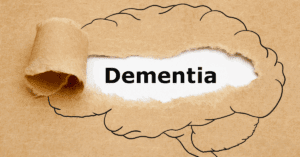
Families often begin searching for a memory care community in Menomonee Falls after noticing troubling changes in their loved one’s behavior. The challenge many face is that seniors actively conceal their memory problems, making it genuinely difficult to know when professional help becomes necessary. Countless older adults and their spouses hide symptoms of Alzheimer’s disease or dementia because they fear losing their independence or being separated from family. Understanding how seniors mask their cognitive decline can help you offer support that honors both their dignity and their very real needs. Here are the five most common ways older adults hide memory problems—and the signs that can help you recognize what’s really happening.
1. Covering up Memory Lapses with Help from Others
Family members providing cues
Adult children and other family members often develop their own systems for providing memory support without making it obvious. These memory cues fall into three main categories:
- Sociological cues offer reminders about background, education, work history or group connections that help trigger memory. A daughter might say, “Dad, remember you were telling Sarah about your time in the Navy? She had a question about that,” giving her father the context he needs to rejoin the conversation.
- Relational cues connect to the senior’s social history and relationships—references to roles they’ve played or people in their social circle. A son might mention, “Mom, this is Mrs. Johnson’s daughter—you know, your neighbor from Oak Street who brought you tomatoes from her garden”.
- Individual cues highlight personal traits, preferences and values that define someone’s identity. “Dad always takes his coffee black with one sugar,” a daughter might interject, sparing her father from having to remember or admit he’s forgotten.
2. Withdrawing from Social Life and Routines
Avoiding family gatherings
Family gatherings used to be highlights on the calendar. Now they feel like minefields. Your loved one faces the challenge of following multiple conversations at once, remembering which grandchild just graduated from college and fielding questions about their daily life, all while trying to appear normal. The fear of exposure runs deep. What family members often see as rudeness or indifference is actually self-protection. The willingness to isolate for weeks rather than risk embarrassment shows just how profound this fear becomes.
3. Making Excuses for Forgetfulness
Blaming stress or lack of sleep
Sleep and stress are convenient culprits for memory problems because they can affect how well we remember things. Research shows that chronic stress affects cognitive functioning differently in cognitively normal individuals versus those with mild cognitive impairment. Sleep deprivation is considered one of the greatest unappreciated causes of memory problems. This kernel of truth makes stress and sleep particularly effective cover stories:
- “I’m just overtired today—I didn’t sleep well last night.”
- “With everything going on with the grandkids, I’m too stressed to remember details.”
- “Nobody can remember things when they’re exhausted.”
4. Giving up Tasks that Reveal Memory Issues
Avoiding cooking or managing finances
Financial capacity—your ability to handle money and assets in ways that serve your needs and values—often deteriorates early in cognitive decline. This decline frequently begins before either patients or families fully grasp what’s happening. Managing money requires several cognitive skills working together:
- Recognizing and counting money correctly
- Understanding loans and debt obligations
- Handling cash transactions smoothly
- Paying bills on time
- Maintaining good judgment to avoid financial exploitation
Complex cooking tasks often become challenging, too. Someone who once prepared elaborate holiday meals might suddenly prefer takeout or simple microwave options. They may give away cherished cookbooks, claiming they’re “simplifying their life” or that their tastes have changed, when the real issue is difficulty following multi-step recipes or remembering ingredients.
5. Denying or Deflecting when Confronted
Getting defensive or angry
Your gentle questions about memory might trigger surprisingly intense emotional reactions. These outbursts aren’t just bad moods—they’re protective responses to what feels like a threat to everything your loved one values: their independence, their identity and their sense of control. You might notice your loved one:
- Becoming unexpectedly angry when you mention missed appointments or forgotten conversations
- Accusing you of exaggerating problems or “making things up”
- Blaming you or others for their confusion or mistakes
- Reacting with strong emotion to questions that seem perfectly reasonable to you
These defensive reactions often grow stronger as memory issues progress. The anger you’re seeing rarely reflects how your loved one truly feels about you. Instead, it springs from deep fear about what these changes might mean for their future.
Recognizing the Signs and Taking Action
Early recognition opens doors to better support and care options. These conversations feel difficult, but they lead to possibilities that can improve your loved one’s quality of life.
Families ready to explore our memory care community in Menomonee Falls can reach us at (262) 781-6930 to schedule a visit to Heritage Menomonee Falls and see how professional care can honor your loved one’s dignity. Memory loss creates challenges for everyone involved—your loved one and your entire family. With compassion, the right understanding and proper resources, you can help guide this transition while protecting what matters most to them: their sense of purpose and worth as a person.
FAQs
Q1. Is it normal for seniors to become forgetful? Some forgetfulness is normal with aging, but consistent memory lapses that interfere with daily life may signal a more serious issue. If memory problems are affecting your loved one’s ability to function independently, it’s important to consult a healthcare professional for an evaluation.
Q2. Why do seniors often deny having memory issues when confronted? Denial is a common protective response stemming from fear of losing independence. Many seniors genuinely may not recognize their own cognitive changes due to the condition itself. Approaching the topic with empathy and specific examples can help facilitate more productive conversations.


